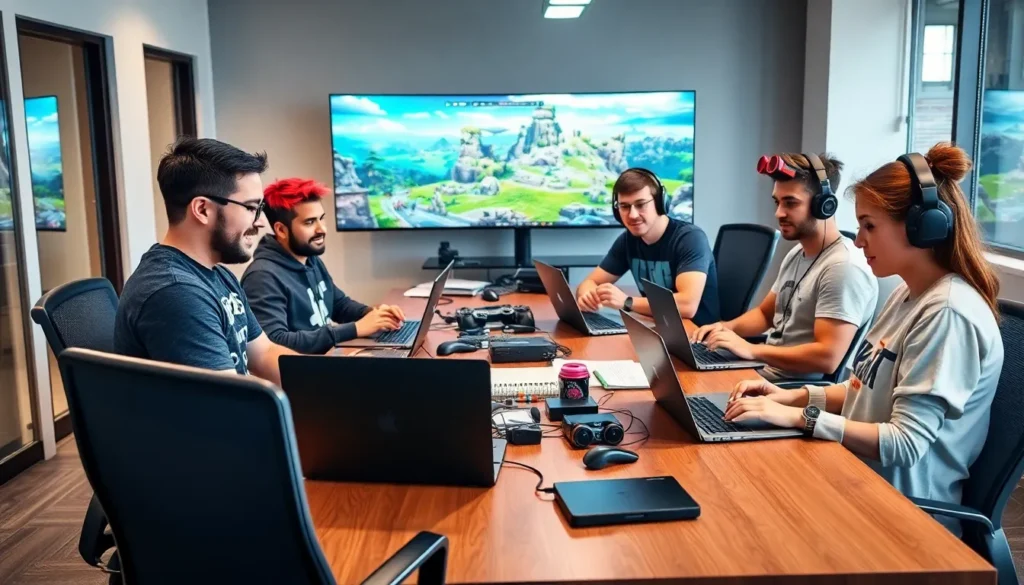Table of Contents
ToggleEver felt like you were sitting on a treasure chest of potential, but just couldn’t find the key? Welcome to the world of empowerment, where unlocking your personal power can change everything. Picture this: a superhero cape flapping in the wind, ready to take charge of your life. Jokes aside, empowerment isn’t just a buzzword tossed around in motivational speeches: it’s a game-changer. It gives individuals the confidence to take action, make decisions, and eventually steer their own ships. Let’s jump into this fascinating journey where lots of power meets real-life applications and insights.
Understanding Empowerment

Empowerment is more than a feel-good concept. It’s about gaining control over one’s life, making informed choices, and standing up for oneself. When discussing empowerment, think of it as a mechanism that allows individuals to realize their strengths, break down barriers, and foster resilience. Eventually, it means taking ownership of one’s destiny. Many people confuse empowerment with simply being given power by an external source. In reality, empowerment stems from within. It’s about recognizing the resources at your disposal and developing a mindset that encourages action and growth.
The Importance of Empowerment in Daily Life
Why is empowerment crucial in everyday scenarios? For starters, it enhances decision-making skills. When individuals feel empowered, they are more likely to make choices that align with their values and aspirations. This sense of agency translates into increased productivity at work, better relationships at home, and a more fulfilling lifestyle overall. Also, empowerment cultivates resilience. Life throws curveballs, and those who feel empowered are better equipped to bounce back from setbacks. They embrace challenges rather than shy away from them, leading to personal development and growth.
Ways to Foster Personal Empowerment
So how can one foster personal empowerment? Start by setting clear goals. Identifying what you want to achieve gives you a roadmap to follow. Next up is self-education. Knowledge is power, and the more you know about a topic, the more confidently you can engage with it. Surrounding yourself with supportive people can also make a massive difference. The right tribe can uplift you during tough times and cheer you on as you conquer your goals. Finally, practice self-care. Taking time for yourself enables better focus, productivity, and overall wellbeing. Feeling good physically and mentally strengthens the resolve to pursue empowerment.
The Role of Empowerment in Leadership
In leadership, empowerment is not just a strategy: it’s a necessity. Effective leaders understand that empowering their teams leads to innovation and collaboration. When team members feel empowered, they are more likely to take initiative, share their ideas, and contribute to a positive work culture. This sense of inclusion and value not only boosts morale but also enhances overall productivity. Importantly, empowered leaders themselves exhibit confidence, make sound decisions, and inspire others to follow suit. The ripple effect of empowerment in leadership can transform an entire organization.
Challenges to Empowerment and How to Overcome Them
Even though its benefits, many face challenges on the path to empowerment. Societal norms, self-doubt, and lack of resources can trap individuals in a cycle of feeling powerless. Overcoming these challenges begins with self-awareness. Acknowledging your strengths and weaknesses is vital in building a foundation for empowerment. Also, seeking mentorship or guidance can open doors to new perspectives and opportunities. Embracing failure as a learning experience rather than a setback also plays a significant role in the empowerment journey. By shifting the narrative around failure, individuals can focus on the lessons learned and adjust their paths accordingly.
Empowerment in Community Development
Empowerment isn’t confined to individual growth: it extends to community development as well. Empowered communities are those where individuals feel capable of contributing towards a common goal. This manifests through collective action, whether it’s in neighborhood improvement projects, local advocacy, or community service initiatives. When individuals come together to support one another, the entire community thrives. It fosters a sense of belonging and shared responsibility, creating an environment where everyone feels valued and heard. Real empowerment drives communities to address issues collaboratively, leading to sustainable and positive change.




